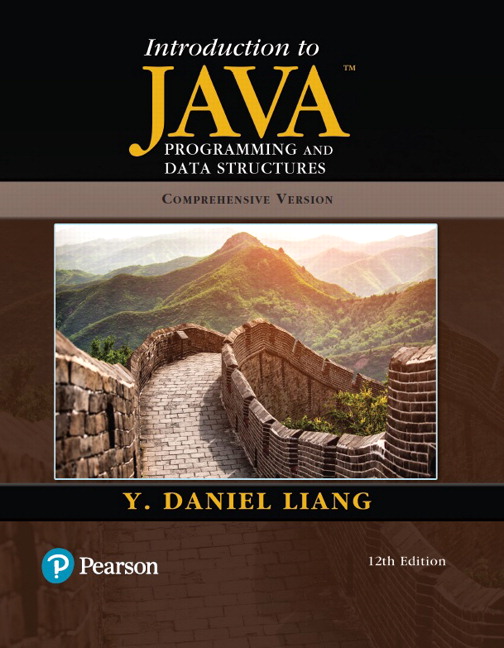
Course Information
 |
CS 112 - Introduction to Computer Science II
Course Information |
 |
Intro to Java Programming, Comprehensive Version, Loose Leaf Edition 12th Edition by Y. Daniel Liang Companion Website, (Pearson) ISBN-13: 978-0136520153 ISBN-10: 0136520154 © 2020 (Note: The 10th or 11th editions are acceptable, but you will need to double-check correctness of reading sections.) |
In-class:
Grading:
PLA office hours start the second week of the semester.
40% Assignments
10% Individual Exercises
10% Fourth Hour Project
30% Quizzes & Exams
5% Computer Science Department Approved Event Attendance
5% Class Attendance / Participation
You are responsible to know the material from each lecture and reading assignment before the start of the next class. Homework is due at the beginning of lecture on the due date. Source code that does not compile may not receive partial credit. (It need not be free from logic errors.) You are required to attend 2 approved CS departmental events over the course of the semester.
Students needing special accommodations should request a meeting to get a Verification of Accommodation Letter (VAL) at the beginning of the semester, and should schedule a meeting time with me during the first week of classes to discuss the VAL.
Since graders will look in the submission system for on-time work only, it is
your responsibility to email me and graders (1) expressing your intention to submit late work, and (2) when you have submitted late work. Step (1) alerts us to not grade any work that has been submitted so as to prevent grading of that work. There are no regrades.
Only pair homework assignments (not individual exercises) will be accepted late. Late
homework will receive a flat 10% penalty (e.g. what would have received 95%
would receive 85% credit, not 85.5%). Late homework will only be accepted
until either 9 classes later or half-way between the due date and the last day of classes (rounding down),
whichever comes first: "Last Class for Late Submission" Table
Class attendance and participation is required. If you attend all classes and are willing to participate, you'll get 100% for this part of your grade. Even if you know enough to give a particular lecture, please consider the value of helping your peers during in-class exercises.
Woody Allen is quoted as saying "80% of success is just showing up." While our class attendance/participation grade is not 80% of the final grade, it is critical that late arrivals and unexcused absences are not excessive. Missing more than half of class unexcused is considered being absent. An unexcused late arrival is counted as a half absence. If the total number of absences counted this way exceeds 20% of class meetings, i.e. 8.5 absences or more, the student will have failed the course.
Honesty, Integrity, Honor. These are more important than anything we will teach in this class. Students can and are encouraged to help each other understand course concepts, but all graded work must be done independently unless otherwise specified (e.g. group work). Submitted work should be created by those submitting it. Submission of plagiarized code or design work is a violation of the Honor Code, which I strictly enforce. For detailed information about the Honor Code, see http://www.gettysburg.edu/about/offices/provost/advising/honor_code/index.dot.
What is permitted:
What is not permitted:
Put simply, students may discuss assignments at an abstract level (e.g. specifications, algorithm pseudocode), but must actually implement solutions independently or in permitted groups. Credit should be given where credit is due. Let your conscience be your guide. Do not merely focus on the result; learn from the process.
For CS 112, use of generative AI will be permitted in GUI development assignments, including the 4th hour project. However, keep in mind the policy for permitted use. If you do not comment, thoroughly review and test, and/or fully understand the code that you present as your own, it is effectively considered a plagiaristic Honor Code violation.